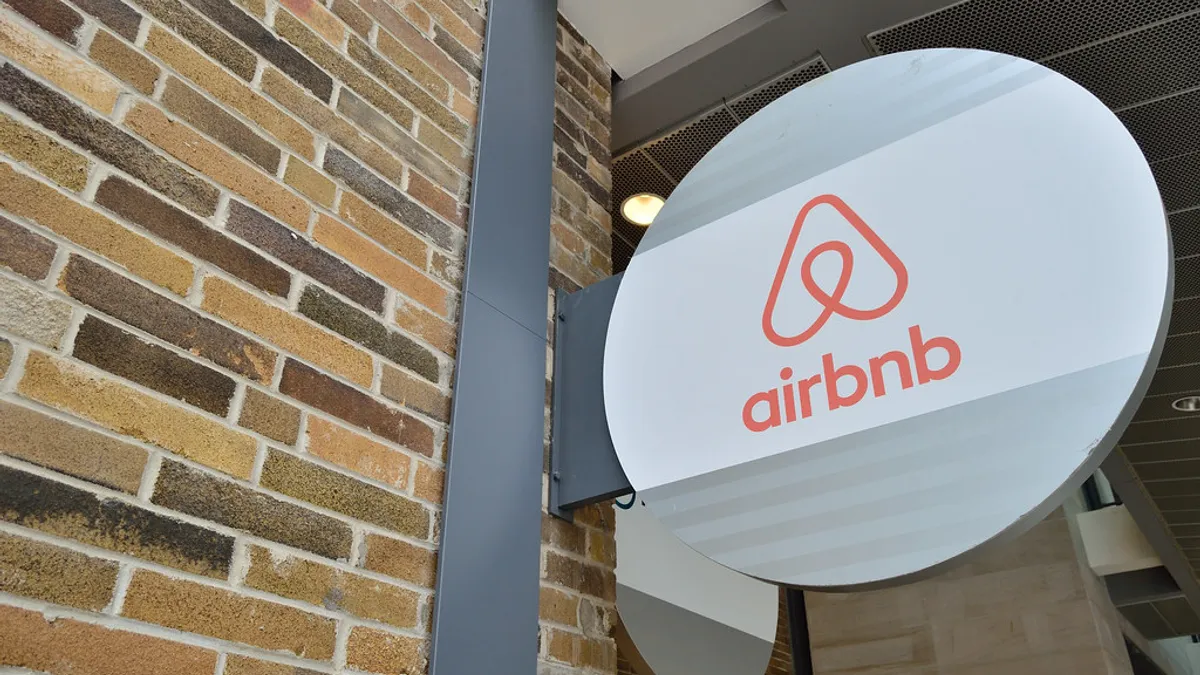Dive Brief:
- A new white paper by The Cornell Peter and Stephanie Nolan School of Hotel Administration, published jointly with the Pillsbury Institute for Hospitality Entrepreneurship, makes a case for consolidating the short-term rental market.
- With around $53.5 billion in gross booking value, or about 25% of the entire U.S. lodging industry, the white paper proposes that the STR market can benefit from utilizing a business model that’s similar to the one used by the traditional lodging industry.
- While a handful of property/operating companies like Wander, AvantStay and Heirloom are entering the market, there isn’t yet a nationally recognized STR brand that’s comparable to Marriott, Hilton or Hyatt. But, according to the Cornell paper, the potential is there.
Dive Insight:
Following a strategy similar to that used by the traditional lodging industry, Cornell researchers propose that the U.S. short-term rental market consolidate resources, as the market matures, tech improves and consumer demand increases post pandemic.
The white paper argues that, by implementing a property/operating company structure, STR operators would be able to control their assets without investing expensive and dilutive venture dollars into real estate.
Instead, a property company partner would own the real estate — for example single-family homes — replacing individual property owners. In this way, operators would be able to improve service and maximize guest experience across an entire portfolio, while establishing a strong hospitality brand.
The paper points out that over 72% of hotels in the U.S. are affiliated with large brands, such as Marriott, Hilton, IHG and Hyatt. In contrast, the largest operator in the short-term rental market, Vacasa, manages less than 1% of the total market.
Although many new venture capital-backed STR operating companies like Sonder and Vacasa have attempted consolidation, none have successfully created a nationally recognized brand — even though this seems to be the most profitable approach.
According to the white paper, professional property managers represent only 1% of all Airbnb hosts, but they manage 23% of available listings and generate 28% of total revenue, which may signal a move away from non-professional hosts for the booking platform. In the U.S., Vrbo represented 21% of all guest check-ins for professionally managed properties in 2022 and 21% of revenue, whereas Airbnb made up 18% of check-ins and only 11% of revenue, despite better brand recognition.
Regardless of the business structure, the Cornell researchers note that both the property and operating companies would need to be “relentlessly focused on guest experience and mastering the balance between offering unique properties while providing consistent quality, service and convenience,” which can be a challenge. Plus, the changing regulatory landscape surrounding STRs complicates matters even more.
Also, Key Data recently reported that, during the first half of 2023, RevPAR increased in Europe, the U.K. and globally, but it fell sharply in the U.S. RevPAR fell 3.3% to $89 in the first half of the year, and average daily rate was down 2.3% to $260. Meanwhile the average booking window fell from 45.1 days to 41.2 days — “another clue that consumer confidence has been hit.”
But the U.S. may be seeing a turnaround. Occupancy was down 1% annually in Q2 but is up 4.3% so far in Q3, according to the report.









